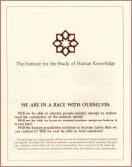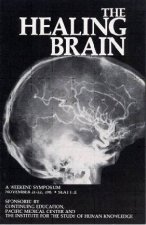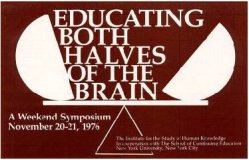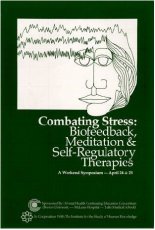ISHK History
WE ARE IN A RACE WITH OURSELVES
Will we be able to educate
people quickly enough to understand the complexity of the modern world?
Will we be able to learn to control nuclear weapons before it is too late?
Will the human population continue to increase faster than we can control it?
Will we ever be able to feed ourselves?
Will we be able to learn to control nuclear weapons before it is too late?
Will the human population continue to increase faster than we can control it?
Will we ever be able to feed ourselves?

ISHK began with these questions over three decades ago. The
twentieth century saw major advances in our knowledge of human nature.
Scientists in many disciplines unraveled mysteries of the human brain. Research
in psychology confirmed observations of classical thinkers such as Plato, Rumi,
and El Ghazzali on conditioning, attention, and perception; the link between
mind and health was well established; new discoveries in the past 60 years have
revealed more about the origins of Christianity than perhaps in any other
period. Though vital to humanity and the world today, even in the twenty-first
century, this new knowledge has been slow to reach the general public and public
policy makers. In the mid-1960s, ISHK's founders envisioned approaches toward
solving some of the complex social, political, economic, biological and
environmental issues facing humankind. They established ISHK in 1969 as an
educational organization to begin the task of closing the knowledge gap in these
areas.
A brochure entitled "We Are
in a Race With Ourselves" in the 1970s laid out some of the problems and
issues facing the world today. Are the solutions to these problem issues within
our grasp, or are we still in a race with ourselves? Read More...
* * *
The race is still on...To
read a little more about the history of ISHK, continue with the following
chronological account.
2000 - 2011...
"...a main focus of ISHK's work since our founding in
1969 has been to disseminate information and insights from psychology and other
disciplines about who we are and how our minds work, so that we may be more
conscious in shaping the future. Today...getting this kind of information and
insight into the wider culture is more important than ever." -- Robert
Ornstein
Hoopoe Books Share Literacy
Program™
In the past four decades, ISHK took note of the great need for books and educational materials by at-risk kids throughout the country. In early 2000, ISHK began its children's literacy project called Hoopoe Books Share Literacy™ program under the directorship of Sally Mallam. Through generous support from donors, grants from organizations such as The Will J. Reid Foundation, eBay, H.E.B. Texas, Kaiser Permanente, and others, Share Literacy has been able to work with established programs designed to promote thinking and reading skills in young children and to contribute books, CDs and newsletters to over 350,000 families, many of whom had no books in the home before. As an adjunct to this project, with the help of professional educators and researchers, in 2004-2005, ISHK developed and piloted early education curricula for teachers and developed free parent-teacher manuals for all the Hoopoe books offering home and school activities to help instill the love of reading in children. In 2006, ISHK began pilot programs for training teachers on the use of the Hoopoe books in a program called "Teaching-Stories: Learning That Lasts." Since that time, Hoopoe Books Curriculum and Training programs have been used successfully used and critically acclaimed by educators all around the country.
September 11 and Beyond
ISHK responded to the tragedies of September 11 by offering information that stresses the need for educating ourselves about brainwashing and conversion, as well as the rich cultures and contributions to human history from the regions of Afghanistan, the Middle East, and Central Asia.
The Human Journey
In 2005-2006, ISHK embarked on developing a new website to follow humanity from our origins in Eastern Africa and the Middle East to the present day, with an eye to what comes next. The Human Journey website publishes important essays written by foremost researchers and experts which should help overlay the significant stages of this journey with what we know of how we adapted physically and culturally to conditions along the way. ISHK hopes that an examination of these determinants will reveal a better understanding of who we are as humans and why we do what we do.
As part of the Human Journey, in April 2006, ISHK sponsored a
one-day symposium in Cambridge, MA, entitled The Core of Early Christian
Spirituality: Its Relevance to the World Today bringing together leading
researchers speaking on some of the latest discoveries and their implications
for contemporary spirituality. In the past 60 years, more has been revealed
about the origins of Christianity than perhaps in any other period in history.
"At a point when religions are seen by many to be in conflict, when some call
for an end to faith, others for a split between spirituality and religion, we
are bringing together leading thinkers on the new, radical evidence about early
Christianity and what it means for us today," says moderator Robert Ornstein in
a pre-conference interview.
All About Me
Work is in progress on the fourth title in a series of books and teaching materials on human nature for kids ages 12 - 18 (All About Me). The first three books focused on our memory, our feelings, and how our behavior is influenced by others. Under the editorial direction of Denise Nessel, Ph.D., Publications Director of the National Alliance for Effective Education, and of Robert Ornstein, Ph.D., as advising psychologist, the series will present the latest information from various branches of psychology in an engaging, relevant and practical way for children of this age group.
* * *
1990s...
A FABLE:
Once upon a time, in a land not very far away, was a community located along the banks of a river. The citizens were distressed because so many people were drowning in the river. So they developed ambulance speedboats, impressive resuscitation procedures, and intensive care units. Sometimes the rescues worked, but often they did not. Either way, their heroic medical efforts fully occupied their time, attention, and resources. Then one day someone asked, "Why don't these people learn to swim?"
Once upon a time, in a land not very far away, was a community located along the banks of a river. The citizens were distressed because so many people were drowning in the river. So they developed ambulance speedboats, impressive resuscitation procedures, and intensive care units. Sometimes the rescues worked, but often they did not. Either way, their heroic medical efforts fully occupied their time, attention, and resources. Then one day someone asked, "Why don't these people learn to swim?"
Continuing
Education at Home for Psychologists
ISHK's CE@Home Program for Psychologists, founded in 1979 under the direction of Charles Swencionis of the Albert Einstein College of Medicine, began as a direct extension of the Brain, Mind and Psychology seminars of the 1970s and 1980s. ISHK is approved by the American Psychological Association to sponsor continuing education. ISHK set up a structure to insure compliance with the APA's Ethical Principles of Psychologists and, today, there are over 300 courses offered to psychologists in states that require CE accreditation in such fields as Clinical Psychology, Ethics, Cognitive Psychology, Gender Studies, Psychology of Consciousness, and many others.
The Mind/Body Health
Newsletter
Because of the explosion of knowledge about the role of mental and social factors in health and longevity,from 1992-2000, under the direction of David Sobel, M.D., Director of Preventative Medicine at Kaiser Permanente, ISHK began publishing The Mind/Body Health Newsletter, the first newsletter dedicated to bridging the gaps between mind and body, research and practice, in the fast-moving new fields of behavioral medicine, psychoneuroimmunology and health psychology. For nearly a decade, ISHK's Mind/Body Health Newsletter (originally Mental Medicine Update) was an important resource for more than 35,000 readers — lay persons and practitioners. The fundamental health information from the newsletter is now available in the Healthy Mind Healthy Body Handbook edited by David Sobel and Robert Ornstein.
Malor Books
As part of ISHK's mission is to make available important works in the fields of health, psychology, education, cross-cultural studies, and spirituality, in 1995 ISHK founded Malor Books to publish new or reprints of significant and thought-provoking works. The first publication brought back the important work of Gordon Claridge, The Origins of Mental Illness, and subsequent printings included works by Denise Nessel, Paul Ekman, Robert Ornstein and many others. ISHK has made the Malor publication New World New Mind by Robert Ornstein and Paul Ehrlich available in a free downloadable version on our website, and ISHK plans to offer more downloads for future works.
Hoopoe Books
In 1998 ISHK's Hoopoe Books, under the editorship of Sally Mallam, began publishing an award-winning series of large-format, illustrated children's books by Afghan author Idries Shah featuring traditional teaching tales. In part, this endeavor was to enhance the scientific research initiated in the Mind, Brain and Health seminars over two decades earlier that supported the evidence that these traditional Teaching-Stories enhance the learning process in children and adults alike. There are now 11 children's books by Idries Shah, ranging from ages 3 & up, many of them printed in bilingual Spanish-English or Spanish languages and most with audio CDs available in multiple languages. Since its inception, Hoopoe books continue to garner praise from major educational reviewers, including the School Library Journal, NEA Today, Children's Bookwatch, and featured on NPR News in "All Things Considered." In 2009, Hoopoe Books expanded its offering to include the All About Me series of books for ages 12-18, and other important works for children.
1980s...
"On the positive side, the brain possesses highly
refined mechanisms to maintain and restore health. We are not helpless and
defenseless in the face of the stresses of everyday life." -- Robert
Ornstein, in The Healing Brain

The Healing Brain Seminars
From the Mind & Body, Health and Psychology series of seminars in the 1970s, ISHK developed the popular Healing Brain Seminars, under the direction of Dr. David Sobel (Director of Preventative Medicine, Kaiser Permanente). The seminars were established to give a much-needed forum to pioneering researchers in mind/body health, and much of what we now know about mind-body relationships come from this important series. The seminars were attended by over 20,000 health professionals, and they helped bring psycho-social factors such as stress, depression, optimism, and social support to the forefront of health care. The work by Robert Ornstein and David Sobel entitled The Healing Brain touches on much of the material from these seminars. (See also The Healing Brain: A Scientific Reader, edited by Robert Ornstein and Charles Swencionis, in the ISHK CE at Home program.) Read More...
The Road to the Future
In 1989, ISHK's Road to the Future
symposia convened a distinguished panel of thinkers to address pressing issues
of our time: cross-cultural communication, the environment, and effects of
technological progress. Participants included historian James Burke,
anthropologist Edward T. Hall, novelist Doris Lessing, and ecologist Paul
Ehrlich.
1970s...
The educational system, both past and present, has
specialized in verbal analysis and the teaching of reading, writing and
arithmetic. What it has neglected, perhaps, is the development of relationships
between ideas, between people, and the perception of whole systems—the
development of the whole person. -- Paul Brandwein, Ph.D., from
"Educating Both Halves of the Brain" seminar
Brain, Mind and Health
Seminars
 Because of
the growing understanding among scientists and educators on the complex, yet
subtle relationships between the body and the mind, ISHK began the
groundbreaking seminars on mind and body
health. New scientific discoveries on the brain and consciousness were
emerging, and there was a growing recognition of the differences between people
and of the need for new and better techniques for educating the whole
person. ISHK's intention was to present a new synthesis and a new
understanding of the brain, the duality of the mind, and the implications of the
newer knowledge of split-brain and normal brain research for the purposes and
processes of education. A long list of eminent faculty in these early seminars,
including Idries Shah, Rene Dubos, Linus
Pauling, Robert
Ornstein, and others, presented scientific evidence that tools such as the
Teaching-Story, meditation, biofeedback enhance our understanding of ourselves.
The information developed and taught in ISHK's early Mind & Body seminars
was, indeed, part of the foundation upon which current successful practices in
education, medicine, and psychology are based. Read More...
Because of
the growing understanding among scientists and educators on the complex, yet
subtle relationships between the body and the mind, ISHK began the
groundbreaking seminars on mind and body
health. New scientific discoveries on the brain and consciousness were
emerging, and there was a growing recognition of the differences between people
and of the need for new and better techniques for educating the whole
person. ISHK's intention was to present a new synthesis and a new
understanding of the brain, the duality of the mind, and the implications of the
newer knowledge of split-brain and normal brain research for the purposes and
processes of education. A long list of eminent faculty in these early seminars,
including Idries Shah, Rene Dubos, Linus
Pauling, Robert
Ornstein, and others, presented scientific evidence that tools such as the
Teaching-Story, meditation, biofeedback enhance our understanding of ourselves.
The information developed and taught in ISHK's early Mind & Body seminars
was, indeed, part of the foundation upon which current successful practices in
education, medicine, and psychology are based. Read More...
Psychologies East and West
Seminars
Much of ISHK's work through the 1970s evolved to the development and initiation of continuing education programs in partnership with major academic and professional institutions, such as the Universities of California, The New School, Boston University, Albert Einstein College of Medicine, Stanford University, and others. In 1972, ISHK became one of the first organizations approved by the American Psychological Association to sponsor continuing education for psychologists. Because psychology overlaps many professional fields of study and covers a broad range of populations and service settings, ISHK began with seminars on psychological advancements in biofeedback, meditation and self-regulatory therapies and, in the 1990s, developed course work that covered fundamental skills that are essential for competent functioning as a clinical psychologist within the areas of health and mental health. (See CE at Home for Psychologists program.) Read More...
The Book Service
During the 1970s, ISHK began to see a need in the U.S. for books and collections on ancient and new ways of thinking, so in 1972, the ISHK Book Service was formed as a central source for important contemporary and traditional literature. ISHK became the sole US distributor of the works of Idries Shah published by Octagon Press LTD. Libraries, universities, trade booksellers, and the general reading public began to find out about this wealth of knowledge. In the past three decades, more than 2 million books have been distributed through the Book Service.
* * *
Beyond Today...
GROWING MY FIELD
Someone observed Nasrudin digging earth from his field and piling it into a mound. "What are you doing, Mulla?" he asked. "I am collecting this earth so that I can scatter it and make my field grow bigger." -- From The World of Nasrudin by Idries Shah, Octagon Press, 2003
Someone observed Nasrudin digging earth from his field and piling it into a mound. "What are you doing, Mulla?" he asked. "I am collecting this earth so that I can scatter it and make my field grow bigger." -- From The World of Nasrudin by Idries Shah, Octagon Press, 2003
We hope to continue the expansion of our programs as much as
possible in the next few years. Our literacy and education programs will further
develop to meet the most current standards in American education. Our Continuing
Education directors are working on plans to include not only psychologists, but
physicians in our course offerings. We will continue to research and disseminate
information on the latest in health, psychology, education, human nature, and
much more.
In the past ten years alone, ISHK's programs have grown
enormously thanks to the generous support from grants and donations. ISHK runs
all our programs with an administrative staff of 6, plus the support of
approximately 200 volunteers who provide hundreds of thousands of dollars worth
of services per year. If you wish to help us with any of our programs, please volunteer your services, or consider a donation.